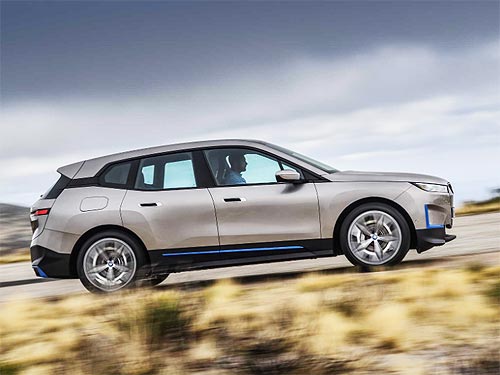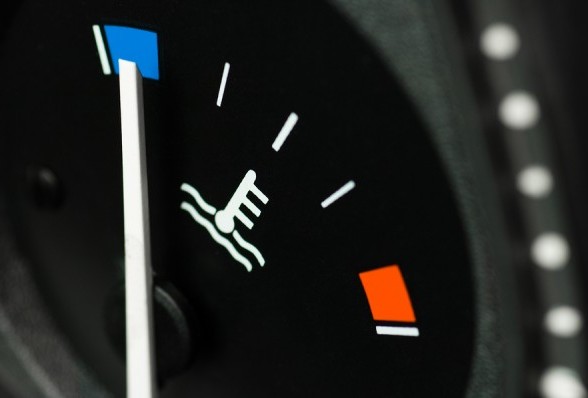The BMW Group is increasing its purchases to bring new levels of electromobility and set new standards for sustainability. The expansion of the field of electromobility creates the need to properly support the supply chain, both in terms of CO2 emissions and in relation to the sources of critical raw materials used to manufacture battery cells.
By 2030, the BMW Group plans to have over seven million electrified vehicles on the roads, two-thirds of which will be fully electric. On this scale, the purchasing department of the BMW Group not only ensures that the supply chain can handle large volumes, but also meets the requirements of sustainable development. In this way, the purchasing department of the BMW Group is making a vital contribution to the company’s transition towards e-mobility.
High flexibility meets the growing demand for electromobility. The growing demand for electric vehicles is also increasing the need for components and parts that are used in the manufacture of these vehicles. In particular, the BMW Group is taking various measures to ensure a stable supply of battery cells. The company obtains current 5th generation battery parts from four suppliers, reducing reliance on separate sources of supply.
Since the battery accounts for most of the cost of electric vehicle powertrain, long-term cost savings are needed. The focus is on the raw materials for the production of battery cells. Therefore, the BMW Group brings together its innovations in these sectors in its own Battery Cell Competence Center.
The impact of sustainable development on the BMW iX.
The BMW Group is steadily expanding its sustainability activities in parallel with the rapid growth in the production of electric vehicles. Procurement focuses on three main areas: 1. adherence to environmental and social standards and respect for human rights; 2. protecting natural resources 3. reducing CO2 emissions in the supply chain.
These measures are already showing results in the BMW iX (combined energy consumption <21 kWh / 100 km in the WLTP test cycle *; combined CO2 emissions: 0 g / km): the use of renewable green energy sources for the production of battery cells and a wider The use of recycled materials reduces CO2 emissions in the BMW iX supply chain by 17% compared to the same vehicle produced without these measures.

At the same time, the BMW Group is also limiting the use of critical raw materials and reducing the amount of cobalt in the cathode material for the current fifth generation batteries to less than 10%, as well as increasing the amount of recycled nickel to 50%. The electric drive no longer requires the use of rare earth elements.
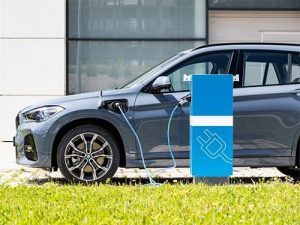
Compliance with environmental and social standards is monitored through transparent processes before, during and after the conclusion of the contract.
The BMW Group is a pioneer in the corporate due diligence of the supplier network. Back in 2008, the company began tackling this issue and subsequently insisted on comprehensive environmental and social standards when commissioning the BMW i3 electric vehicle. Since 2014, all direct suppliers to the BMW Group are obliged to respect human rights, comply with expanded environmental and social standards, and implement management systems to ensure occupational safety and environmental protection. These requirements must also be outsourced to the contracted subcontractors.
Compliance with the established requirements of sustainable development is a prerequisite for the conclusion of the contract. Throughout the contract term, external partners work with internal evaluators to verify sustainability compliance through surveys and audits.
If a dispute arises at any of these stages, the BMW Group will coordinate the appropriate measures with the suppliers. Thus, the purchasing department of the BMW Group tracks thousands of locations every year.
Special attention to critical raw materials.
Addressing violations of human rights and environmental standards is a particular challenge when using critical raw materials such as lithium and cobalt, which are key components for battery production. This is why the BMW Group has taken additional measures to use both raw materials to ensure that cobalt is mined and processed in accordance with sustainable standards and to avoid problems with working conditions such as child labor. Therefore, the company purchases cobalt and lithium directly from the mines and makes them available to battery suppliers.
Another major challenge is to ensure respect for human rights and environmental, health and safety standards in the extraction of raw materials. For this reason, as part of the corporate due diligence, the BMW Group is actively involved in local projects. In 2018, the BMW Group teamed up with other partners to create a cross-sectoral Cobalt for Development initiative in Congo. The aim of the project of the German Society for International Cooperation (Deutsche Gesellschaft für Internationale Zusammenarbeit (GIZ)) is to develop and improve the professional level of mining in the region in order to meet the high demands of the BMW Group in the field of sustainable development.
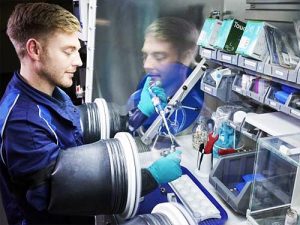
Additional measures for the use of critical raw materials.
The BMW Group has taken additional measures to comply with environmental and social standards in the use of critical raw materials. Here, the procurement of the BMW Group goes beyond the contractually agreed sustainability standards and extends to the supply chain through relevant agreements concluded directly for critical areas.
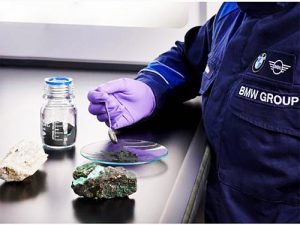
The focus is on mines and metallurgical plants: here direct contact can be expanded through cooperation. It is also important that mines and smelters are certified according to rigorous internationally recognized standards. To this end, the BMW Group actively participates in international initiatives aimed at the extraction of raw materials, such as the IRMA standard, which is the most accepted, ambitious and foreseeable of all mining industry standards.
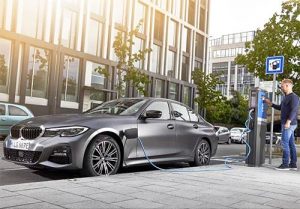
Responsible management of natural resources.
In addition to upholding environmental and social standards and respecting human rights, the responsible management of exhaustive natural resources is also central.
In order to preserve stocks of critical raw materials, the BMW Group has set itself the goal of significantly increasing the proportion of secondary raw materials by 2030 and reusing them in a circular economy. The development of electromobility makes the idea of a circular economy increasingly important due to the need to use a large amount of critical raw materials that are needed for battery cells. Recycled materials significantly reduce CO2 emissions compared to primary materials: about four to six times for aluminum.

Effective reduction of CO2 emissions in the supply chain.
The BMW Group aims to reduce supply chain CO2 emissions by 20% for a single vehicle by 2030 compared to 2019 levels. Without corrective measures, CO2 emissions per vehicle in the BMW Group’s supply chain will increase by more than a third by 2030, mainly due to high energy consumption in the production of battery cells and the increased use of aluminum. The company intends to reverse this trend. This requires making the carbon footprint a decision criterion in the contracting process. In particular, the use of clean electricity for the production of battery cells in the BMW iX has led to significant reductions in CO2 emissions in the supply chain.


